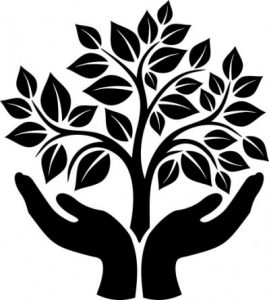Mourning by Gabrielle Kassel

I step out of the Powell’s, an Oregonian bookshop, my new romance novel tucked neatly under my armpit; I look both ways before crossing the street to the kitty-cornered Starbucks. To my left she sits half a block away. Her, with her walker, her macular degeneration, her wind-tosseled greying hair, her sweet voice saying ‘hello’ to the youngsters who hurriedly walk past. Her, with her styrofoam change-cup. Her, in her eighties, homeless, and asking for money. I blush, embarrassed she saw me staring, and hurry into Starbucks to spend $2.95 on a coffee. I hand the barista three dollar bills and then place a nickel of change in the tip jar before waiting in line behind the business professionals who also wait impatiently for their caffeine-fix.
A creature of routine, most days I walk from the gym to Whole Foods for a dinner of organic vegetables and lean meat, and then to the bus stop. She sits two blocks into my walk from Whole Foods to the bus stop, always there from lunchtime to dusk. For the first two weeks, I’d apologize, I’m sorry m’am I don’t have any change on me today, with my Whole Foods bag of over-priced groceries in hand. Most days this apology is true, I’m not somebody who carries change with her, a person dependent on my plastic debit card for its ease and accessibility.
But last Monday a friend of mine and I went out to dinner, and for simplicities sake I paid the meals tab on my card. My friend paid back in cash. The restaurant was three blocks further north than Whole Foods, meant when walking back to the bus stop, I walked past her. For the first time since arriving in Portland, I drop two-dollar bills in her cup, smile, and keep walking to the bus stop. After walking past her, my friend asks do you feel better now? To which I respond, no, I have a twenty-dollar bill in bag that I didn’t give her.
My grandma, my mom’s mom, Nonnie – as I called her, died this past March. She was ninety-two. She had an aneurism that went from her back right to her brain. For comfort, my family and I tell ourselves that it was painless, that an aneurism is the quickest most painless way to go. My Nonnie lived in an assistant living home, a nursing home; she had a button on a bracelet on her wrist that she could press if she needed or wanted one of the staff members to come to her room and check on her. My Nonnie wasn’t a woman who used that button shyly, scared of death and bodily pain, she would press the button with frequency: to have her blood pressure checked, her temperature taken, to get her vitals tested. But on the day of her death, she didn’t press the button. The aneurism must have traveled to her brain and killed her too quickly for her to have pressed the button.
This woman, the one I see on my walk to the bus stop, looks exactly like my grandma did. Their eyes are fogged-white in the same place, their walkers are the same red color, their clothes ill-fit in the same endearing way, and their ankles thickened with veins in the same ‘swollen with life’ way. Even their voice is the similar, their intonation and phrasings of the early nineteen-hundreds.
Mourning is a hard process, its time consuming, it takes you out of your daily routines, and it, for lack of a better phrase, dampens the mood. I hadn’t realized I didn’t mourn my grandmothers death until giving I began giving her Oregonian doppelganger the dollar bills I carried with me each day I passed her. Dropping the green paper into her styrofoam cup has become a part of my routine.
She recognizes me now: when I don’t have any bills on me and can only drop a dime or nickel, I tell myself its because she knows its not for stinginess or lack of caring. She looks at me with her one good eye and smiles genuinely, says sweetheart have a wonderful night, I respond with a weak, you too, be safe, before walking off to the bus stop. She doesn’t know her doppelganger died three months ago, doesn’t know her facial likeness with my grandmother is what fuels my giving, doesn’t know I’ve attached meaning to her blind-eye and veined-legs.
But I don’t think it matters. She and I have engaged in a symbiotic relationship: her helping me mourn the loss of a relative, me helping her pay for a night’s meal. I don’t (yet) know her story. I’m not yet at a point where I want to engage emotionally on that level with her, preferring to instead to feel my grandmothers loss through her.
I don’t write this article to praise myself for my monetary giving’s; in Oregon the homeless rate is high and the rate of giving from those with homes is just as high. What I mean to say is: I’m not unique in my giving, here. It is this generosity that attracts me to my summer-home and it is this generosity that I have found contagious in spirit and undeniable in its benefits. Mourning takes many different shapes, my mourning takes the shape of her: her with her greying hair, warming smile, and deep thanks for the passing strangers. My mourning takes the shape in my daily routine. When an act becomes part of your routine, it becomes part of your life; in my experience, the routine-addition can change a life. Or two.



